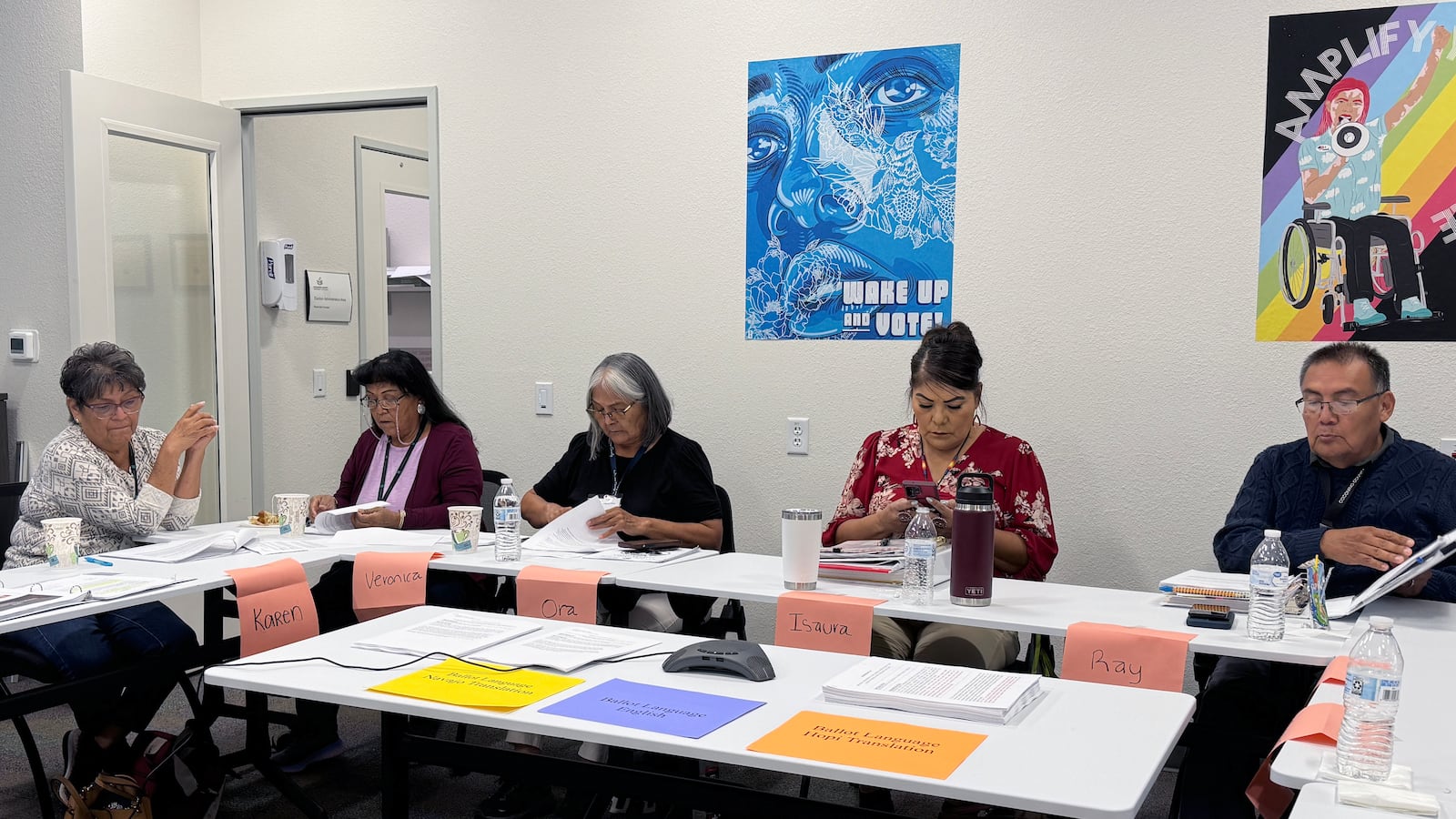
Federal law requires counties with high concentrations of Native speakers to provide translations of the ballot. But what they leave out can be as important as what they put in.
This story was published by Votebeat in partnership with ICT. Votebeat is a nonpartisan news organization covering local election administration and voting access. Sign up for Votebeat Arizona’s free newsletter here.
The group of Navajo speakers gathered in Flagstaff were deep into translating the pages stacked in front of them when they began deliberating over how to best describe fentanyl.
It wouldn’t be a straight translation — almost nothing is, from English to Navajo. But these county and state election officials, charged with translating Arizona’s long and complex ballot for a key group of voters on the Navajo Nation, would try their best to get it right.
“Not azee’,” someone said. “Azee’ is medicine. It’s to heal.”
They looked down at the English text: “Criminalizes selling fentanyl that causes the death of a person.”
Azee’, they decided, gave the wrong impression. The group would need new wording, and quickly.
This was just a single sentence, a small piece of just one of the 13 propositions set to appear on Arizona’s November ballot. By the end of the day, the group had to finish translating all of them into Navajo. Because Navajo is a historically oral language and many who speak it cannot read it, the goal was to come up with a translation that voters who are not proficient in English could listen to at the polls.
Several of the proposals on the ballot are hotly contested, from abortion rights to open primary elections. While the English language used to describe those propositions has been the subject of debate in the press, public, and courts, the translations into Navajo and other languages receive little attention or public scrutiny, even though they are covered by federal law.
Source: https://www.votebeat.org/pf/resources/images/votebeat/logos/vb-arizona-primary.svg?d=126
Full article: https://www.votebeat.org/arizona/2024/09/17/navajo-indigenous-oral-language-translation-voting-rights-act-203/